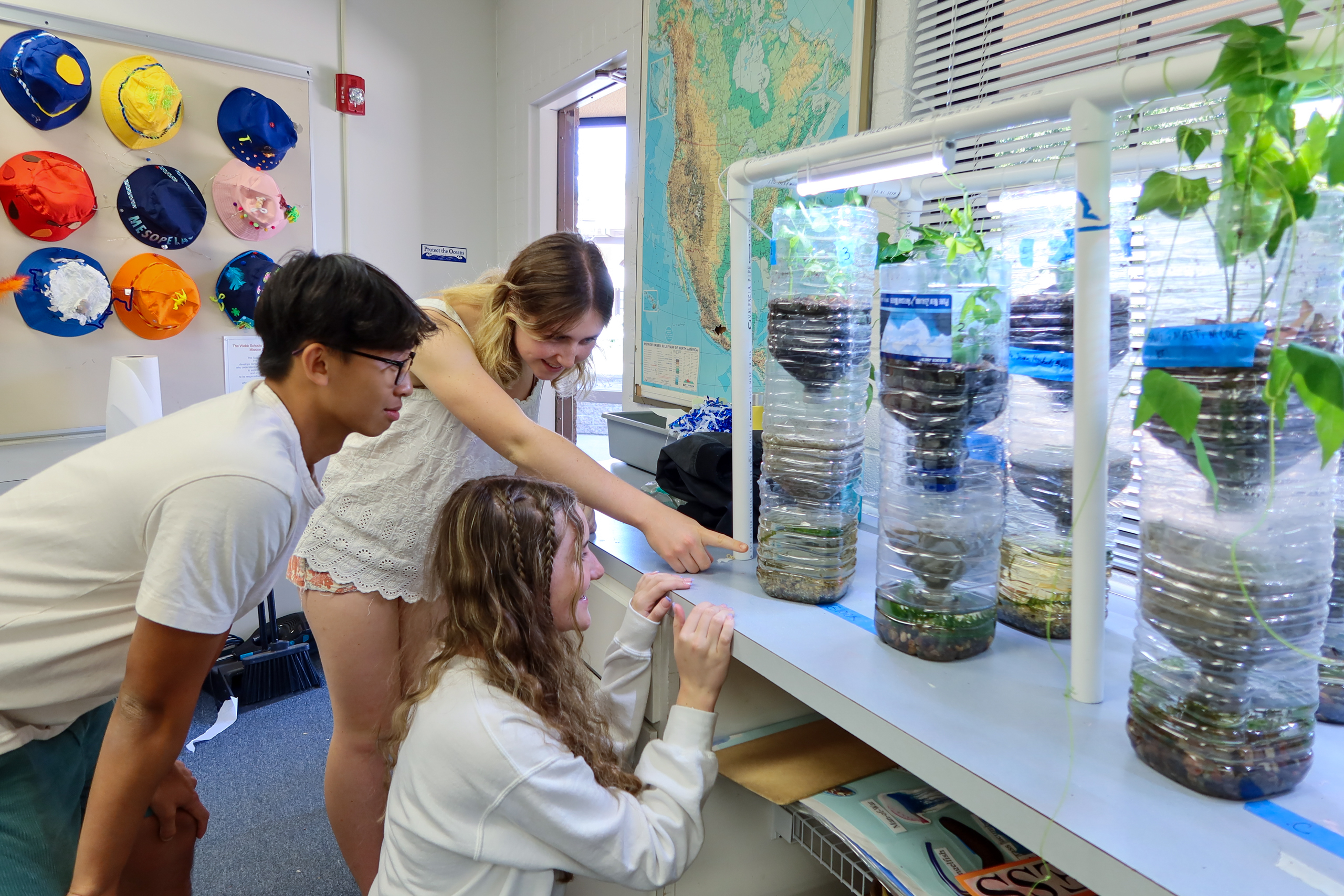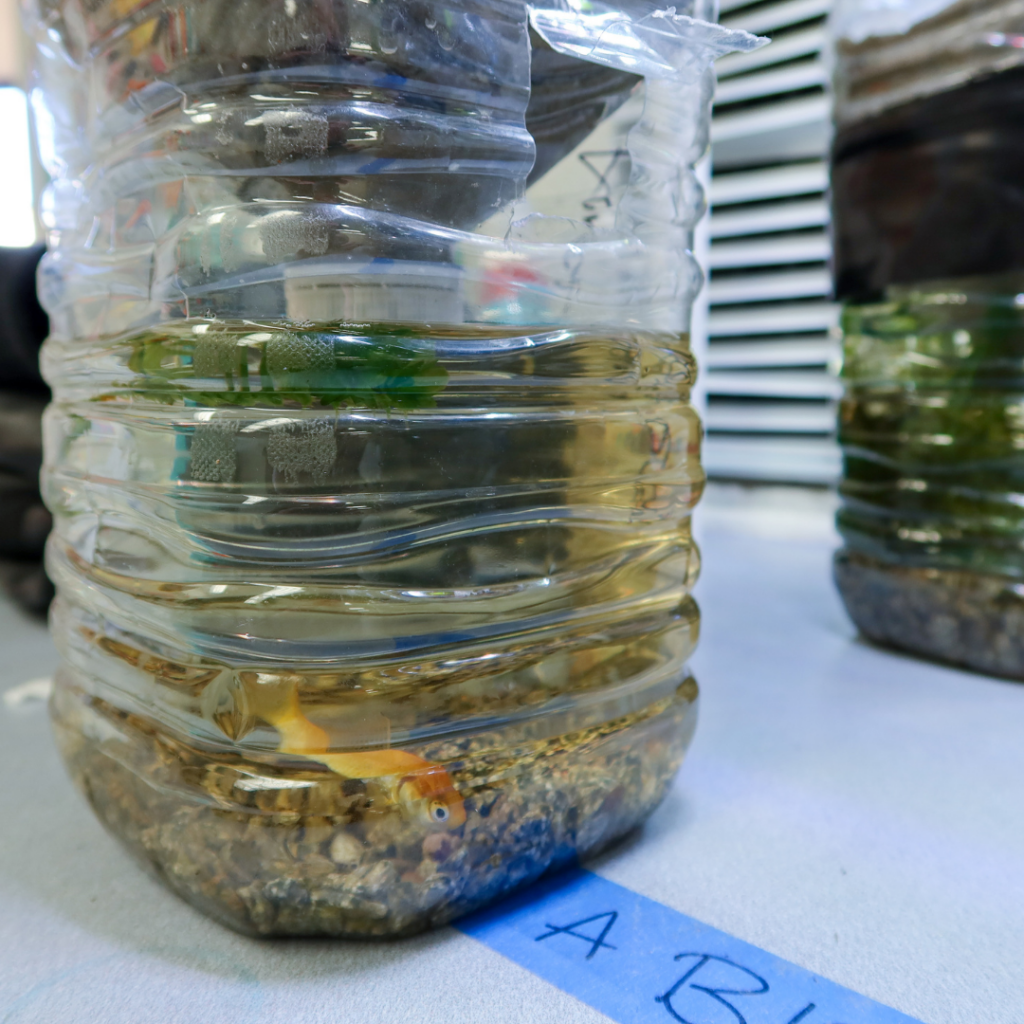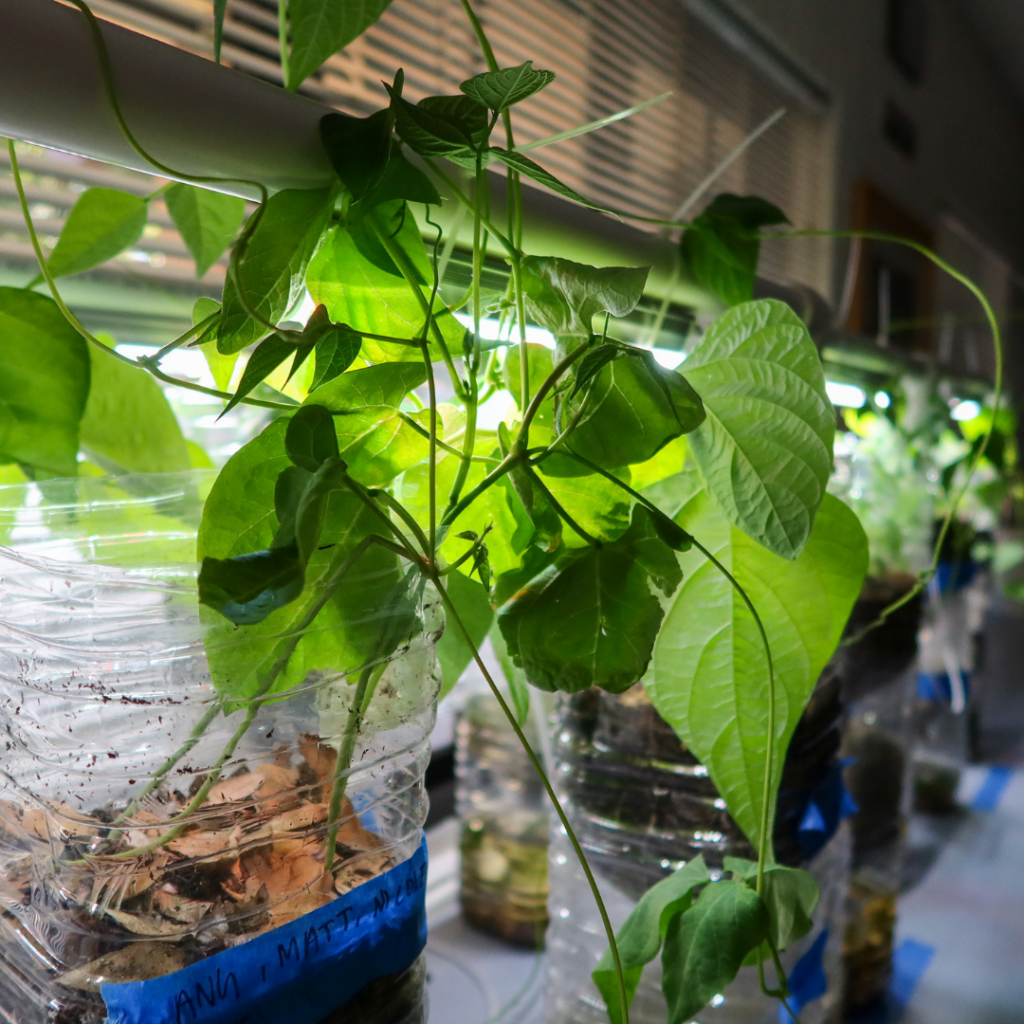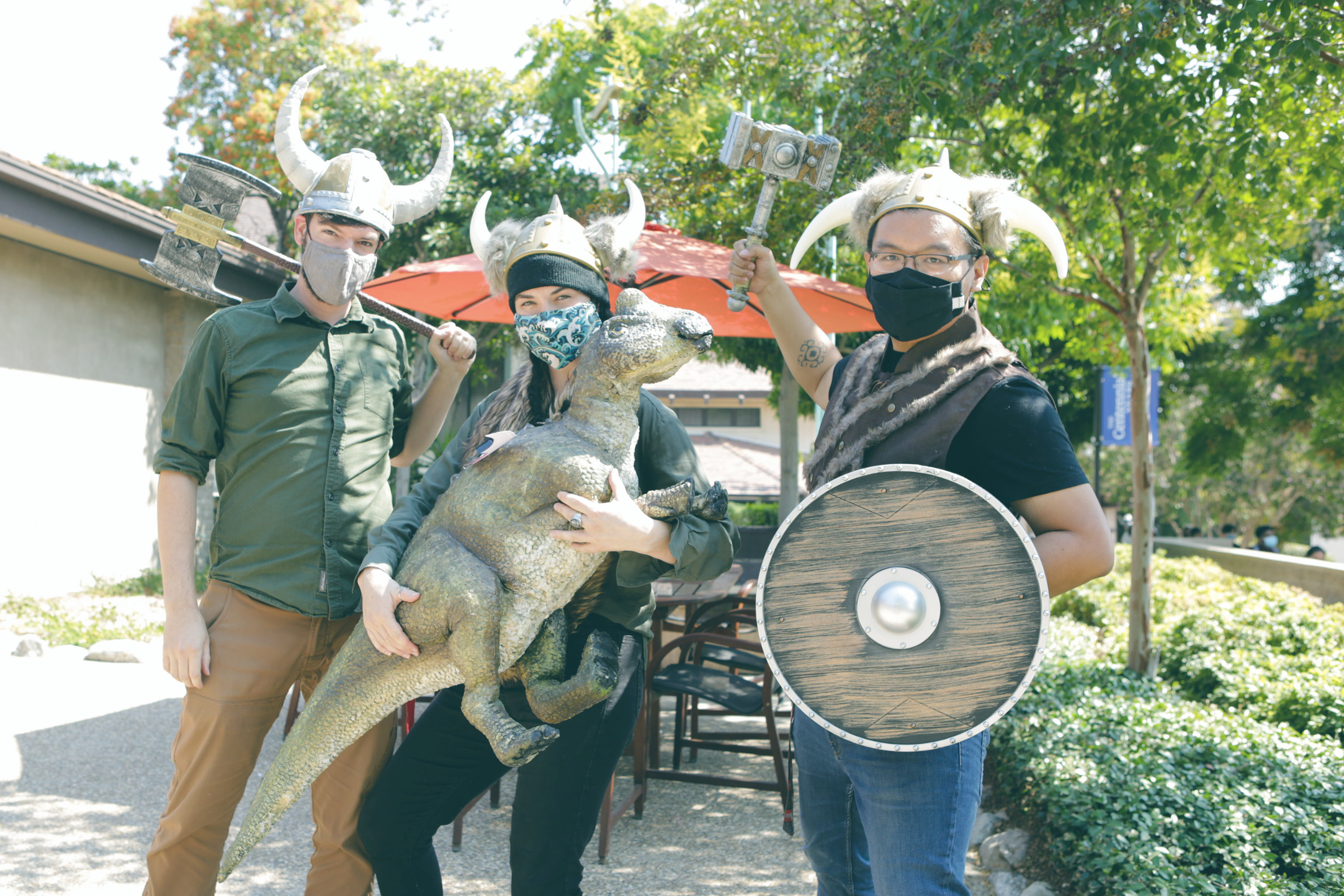Students experiment with ecological systems

Students in Nika Haleftiras’ AP Environmental Science (APES) class learned firsthand how every element in a biological system impacts and supports that system. Groups grew vegetables in EcoColumns of stacked terrestrial, filtration and aquatic chambers built with recycled water bottles.
In the course of their experiments, APES students discovered how delicate an ecological system is: factors of a food web can throw this system out of balance, but the environment can be stabilized by introducing necessary nutrients.
“The more things that go wrong, the better it is for your analysis,” noted Lam Tran ’24.
Students first chose which vegetable seeds to plant in their terrestrial chambers. They knew going into the experiment that the seeds they chose would impact the soil’s nitrogen levels and how many plants could survive in their system. Groups who tried to grow several vegetables discovered that there wasn’t enough nutrients in the soil for all the plants to thrive.
The water used to hydrate the plants passed through the filtration chamber of gravel and sand to the aquatic chamber below. The terrestrial chamber’s nitrogen levels therefore also impacted the goldfish and elodea plants living in the aquatic chamber. Students could add more elodea plants to balance oxygen levels and support their fish, though several fish died in the course of the experiment. Students buried the deceased fish in the terrestrial chamber to fertilize the soil. Fertilization also came from live fishs’ waste present in the water when from the aquatic chamber was used to water the terrestrial chamber.
The experiment lasted over a month, from the first day of classes to Parents Day when students had the opportunity to take home their EcoColumns – complete with surviving fish and vegetables!





